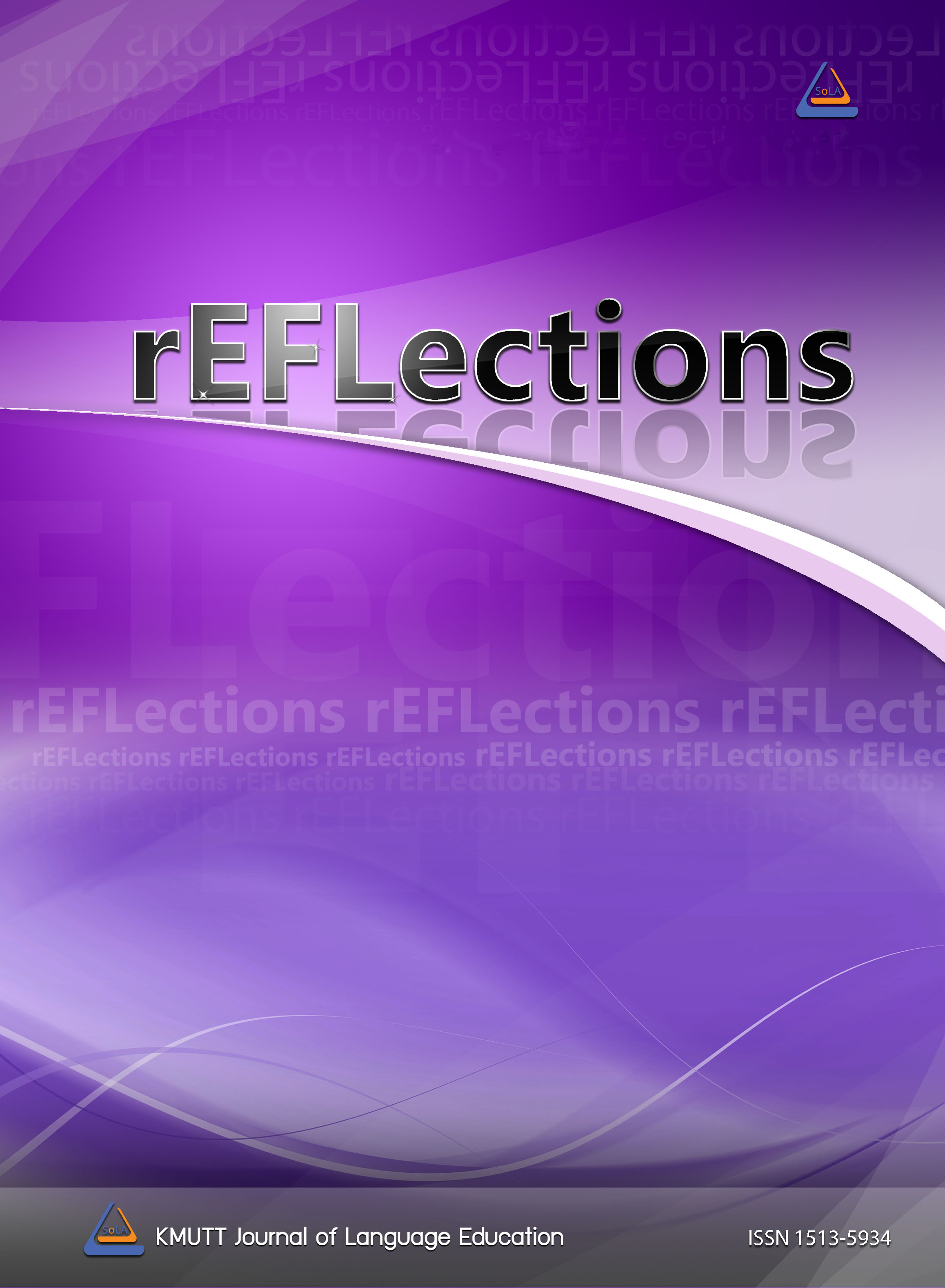Connecting Strategies in Mark Zuckerberg’s Commencement Speech at Harvard University
Main Article Content
Abstract
This research aims to analyze Mark Zuckerberg’s Commencement Speech at Harvard University to explore its wording and the interaction between the speaker and the audience. A Multimodal Discourse Analysis approach (MDA), and the concepts of intertextuality and interdiscursivity were adopted in this study. The results show that intertextually, Mark Zuckerberg narrated his experiences and stories, quoting famous sayings, and inserting religious text into his speech. Interdiscursively, he imported different discourses including discourse on entrepreneurship, discourse on racism, and discourse on globalization. These mechanisms helped weave his speech text coherently and harmoniously into the context. Moreover, his actions and interactions, for instance, joking with the audience, made the formal style of speech delivery more casual, reducing the distance between the speaker and audience. Also, the audience members were encouraged to become engaged in his speech, helping to create harmony among both the local and global communities.
Article Details
References
Bhaktin, M. (1981). The dialogical imagination. University of Texas Press.
Craig, J. L. (2013). Re-inscribing racial separation: A multimodal discourse analysis of the news media’s representations of race during hurricane Katrina. [Master’s Thesis, University of Dayton]. The State Library of Ohio. https://etd.ohiolink.edu/apexprod/rws_etd/send_file/send?accession=dayton1367331938&disposition=inline
Fairclough, N. (1989). Language and power. Longman.
Fairclough, N. (1992). Intertextuality in critical discourse analysis. Linguistics and education, 4, 269-293.
Fairclough, N. (2003). Analysing discourse: Textual analysis for social research. Routledge.
Geenen, J., Norris, S., & Makboon, B. (2015). Multimodal discourse analysis. The International Encyclopedia of Language and Social Interaction, 1-17. Wiley Online Library. https://onlinelibrary.wiley.com/doi/abs/10.1002/9781118611463.wbielsi095
Guo, F., & Feng, X. (2017). A multimodal discourse analysis of advertisements-based on visual grammar. Journal of Arts and Humanities, 6(3), 59-69.
Hakoköngäs, E., Halmesvaara, O., & Sakki, I. (2020). Persuasion through bitter humor: Multimodal discourse analysis of rhetoric in internet memes of two far-right groups in Finland. Social Media + Society, 6(2), 1-11. https://doi.org/10.1177/2056305120921575
Halliday, M. A. K. (1976). System and function in language. Oxford University Press.
Halliday, M. A. K. (1978). Language as social semiotic. Edward Arnold.
Hammer, S. (2010). The role of narrative in political campaigning: An analysis of speeches by Barack Obama. National Identities, 12(3), 269-290.
Izzudin, M. I. (2020). The study of illocutionary acts in Mark Zuckerberg Harvard commencement speech. Master’s Thesis. Universitas Airlangga.
Jones, R., & Norris, S. (2005). Discourse in action. Routledge
Knox, J. S. (2009). Multimodal discourse on online newspaper home pages: A social-semiotic perspective. [Doctoral Thesis, University of Sydney]. https://www.library.sydney.edu.au
Li, F., & Tao, R. (2018). Transitivity Analysis of JK Rowling‘s Commencement Address at Harvard University. International Journal of Languages, Literature and Linguistics, 4(3), 208-225.
Martínez, L. M., & Zammit, K. (2017). Disempowerment and inspiration: A multimodal discourse analysis of immigrant women in the Spanish and Australian online press. Critical Approaches to Discourse Analysis across Disciplines, 8(2), 58-79.
Norris, S. (2004). Multimodal discourse analysis: A conceptual framework. Discourse and Technology: Multimodal Discourse Analysis, 101-115.
Qing, Z. (2018). Research into the interpersonal function of commencement speech: A case study of Mark Elliot Zuckerberg’s speech at Harvard Commencement in 2017. The Science Education Article Collects, 01, 1-11.
Scollon, R. (1997) Handbills, tissues, and condoms: A site of engagement for the construction of identity in public discourse. Journal of Sociolinguistics, 1(1), 39–61.
Scollon, R. (1998). Mediated discourse as social interaction. Longman.
Scollon, R., & Scollon, S. (2003). Discourses in place: Language in the material world. Routledge.
Ye, R. (2010). The interpersonal metafunction analysis of Barack Obama’s victory speech. English Language Teaching, 3(2), 146-151.
Zhao, M., & Zhang, Y. (2017). A transitivity analysis of American President Donald J. Trump’s inaugural address. International Journal of Liberal Arts and Social Science, 5(5), 31-43.


